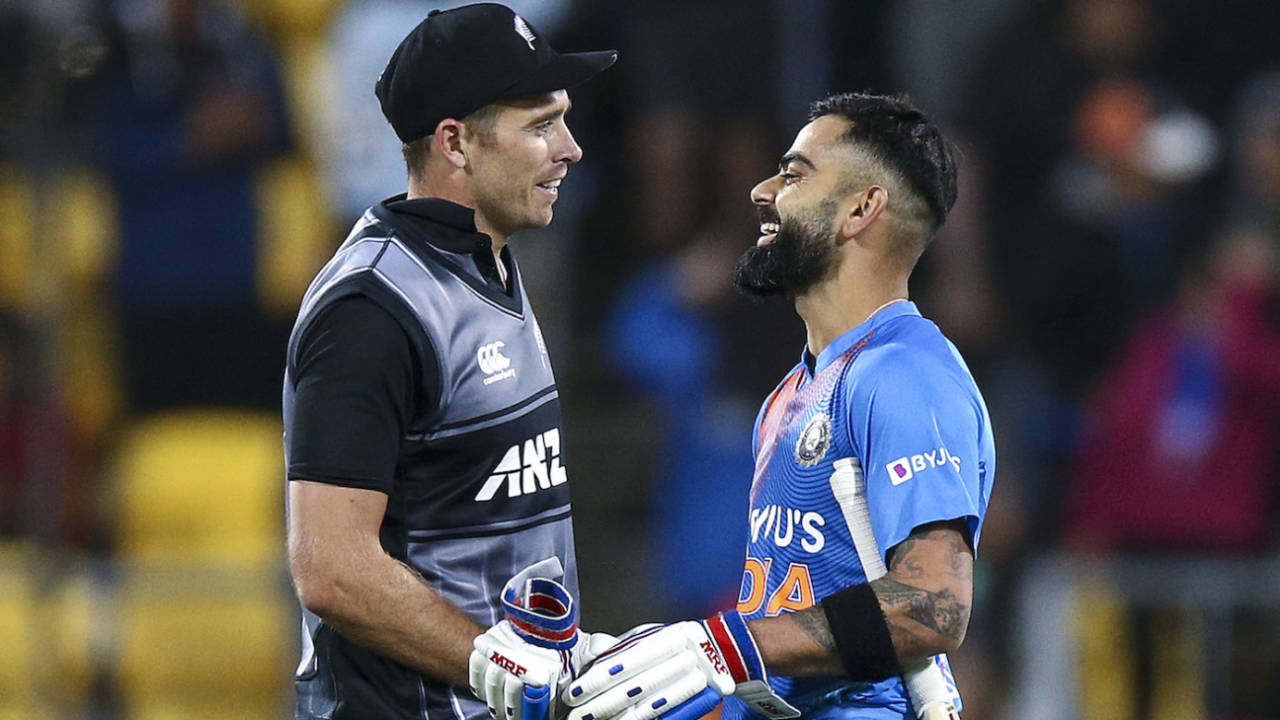Have teams ever tied two consecutive matches before as New Zealand and India did?
Also: was Sikandar Raza the first Zimbabwe bowler to take seven wickets in a Test innings?
The result in Wellington was New Zealand's third straight Super Over loss in T20Is in the last 12 months • Getty Images
The consecutive T20I ties last week - both of them won by India after a Super Over - were the 55th and 56th in international cricket. No bilateral series had previously featured more than one, although there were two - both again involving New Zealand - in the World T20 in Sri Lanka in 2012-13. The result in Wellington meant New Zealand had tied three of their last five T20 internationals - and lost the Super Over in each one.
England's come-from-behind feat to win 3-1 in South Africa in 2019-20 had been achieved twice before. Both were famous four-match series: West Indies, powered by the Three Ws and the spinners Sonny Ramadhin and Alf Valentine, lost the first Test of 1950, at Old Trafford, but claimed the other three, to win a series in England for the first time. Then in 2017-18, in the series overshadowed by the sandpaper controversy in Cape Town, Australia won the first Test in Durban, but South Africa took the remaining three. It's probably worth pointing out that there haven't been that many four-Test series - only 61 in all, nine of which finished with a 3-1 scoreline.
In all, 1105 runs were made in the fourth Test, in Johannesburg, with the highest individual score being 98, by Rassie van der Dussen. Rather surprisingly, perhaps, this comes in at only No. 21 on the list of the highest match aggregates without a century. On top is another match between South Africa and England, in Durban in 1927-28, when 1272 runs were scored in all, with 90 by Wally Hammond being the highest individual contribution. There were 1262 runs (but no hundreds) in the 1997 Ashes Test at Trent Bridge, and 1227 in Melbourne in 1960-61, in the final match of the famous series between Australia and West Indies, which started with a tie in Brisbane.

Sikandar Raza's flattish offbreaks brought him figures of 7 for 113, one of the highlights of Zimbabwe's plucky performance in the second Test against Sri Lanka in Harare last week. Strictly speaking, it was indeed Zimbabwe's first Test seven-for - although that ignores their best Test figures, Paul Strang's 8 for 109 against New Zealand in Bulawayo in September 2000. In third place is Douglas Hondo's 6 for 59 against Bangladesh in Dhaka in 2004-05.
Dimuth Karunaratne and Oshada Fernando both made 44 in Sri Lanka's first innings against Zimbabwe in Harare last week. It's the highest such double for Sri Lanka, but there have been seven higher ones for other countries. Best of all was twin 88s, by Shane Watson and Phillip Hughes for Australia against South Africa in Johannesburg in 2011-12.
Steven Lynch is the editor of the updated edition of Wisden on the Ashes
